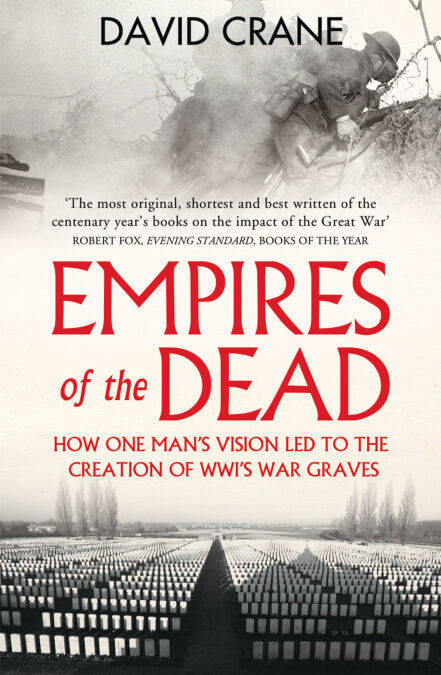
- Afhalen na 1 uur in een winkel met voorraad
- Gratis thuislevering in België vanaf € 30
- Ruim aanbod met 7 miljoen producten
- Afhalen na 1 uur in een winkel met voorraad
- Gratis thuislevering in België vanaf € 30
- Ruim aanbod met 7 miljoen producten
Zoeken
Empires of the Dead E-BOOK
How One Man’s Vision Led to the Creation of WWI’s War Graves
David Crane
E-book | Engels
€ 7,79
+ 7 punten
Uitvoering
Omschrijving
Shortlisted for the Samuel Johnson prize for non-fiction.
The extraordinary and forgotten story of the building of the World War One cemeteries, due to the efforts of one remarkable man, Fabian Ware.
Before WWI, little provision was made for the burial of the war dead. Soldiers were often unceremoniously dumped in a mass grave; officers shipped home for burial.
The great cemeteries of WWI came about as a result of the efforts of one inspired visionary. In 1914, Fabian Ware joined the Red Cross, working on the frontline in France. Horrified by the hasty burials, he recorded the identity and position of the graves. His work was officially recognised, with a Graves Registration Commission being set up. As reports of their work became public, the Commission was flooded with letters from grieving relatives around the world.
Critically acclaimed author David Crane gives a profoundly moving account of the creation of the great citadels to the dead, which involved leading figures of the day, including Rudyard Kipling. It is the story of cynical politicking, as governments sought to justify the sacrifice, as well as the grief of nations, following the ‘war to end all wars’.
The extraordinary and forgotten story of the building of the World War One cemeteries, due to the efforts of one remarkable man, Fabian Ware.
Before WWI, little provision was made for the burial of the war dead. Soldiers were often unceremoniously dumped in a mass grave; officers shipped home for burial.
The great cemeteries of WWI came about as a result of the efforts of one inspired visionary. In 1914, Fabian Ware joined the Red Cross, working on the frontline in France. Horrified by the hasty burials, he recorded the identity and position of the graves. His work was officially recognised, with a Graves Registration Commission being set up. As reports of their work became public, the Commission was flooded with letters from grieving relatives around the world.
Critically acclaimed author David Crane gives a profoundly moving account of the creation of the great citadels to the dead, which involved leading figures of the day, including Rudyard Kipling. It is the story of cynical politicking, as governments sought to justify the sacrifice, as well as the grief of nations, following the ‘war to end all wars’.
Specificaties
Betrokkenen
- Auteur(s):
- Uitgeverij:
Inhoud
- Aantal bladzijden:
- 304
- Taal:
- Engels
Eigenschappen
- Productcode (EAN):
- 9780007457243
- Verschijningsdatum:
- 25/09/2013
- Uitvoering:
- E-book
- Beveiligd met:
- Adobe DRM
- Formaat:
- ePub

Alleen bij Standaard Boekhandel
+ 7 punten op je klantenkaart van Standaard Boekhandel
Beoordelingen
We publiceren alleen reviews die voldoen aan de voorwaarden voor reviews. Bekijk onze voorwaarden voor reviews.











